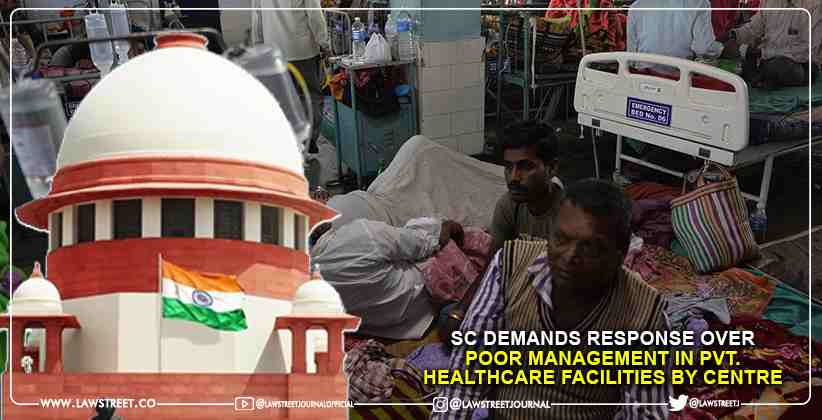The Supreme Court of India after issuing a notice to the Centre, states, and Union Territories remarked, 'let us just hope that the government replies', in response to a petition that highlighted concerns about patient mismanagement and exploitation in private healthcare institutions.
In a PIL, the NGO Jan Swasthya Abhiyan cited many concerns, including the absence of appropriate registration of private healthcare institutions, poor medical equipment and qualified employees, and overpricing at such amenities.
Sanjay Parikh, a senior lawyer representing the NGO, also contended before the three-judge bench chaired by CJI Ramana that, 70% of India's healthcare is in private ownership.
Standard regulations for healthcare institutions, treatment protocol should be provide, asserted Parikh, who also notified the court that the NGO had submitted a representation to the government on the subject.
A patient's charter was established by the NHRC and the Ministry of Health, but it has yet to be enforced. The registration resolution had been adopted by just 11 states, it was added by Sanjay Parikh. He went on to state that, In the Rajya Sabha, there has been debate about operations performed in private institutions. The Ministry of Health later stated that the government has received several complaints of severe overpricing, people being forced to pay exorbitant rates for hospital drugs and services.
NEED TO BE PRACTICAL
The CJI, on the other hand, stressed the need of being realistic. He explained, The issue is that we must be realistic. There will be criteria for registration. We anticipate that small clinical clinics and labs will have competent people, such as MBBS and MD doctors. It is quite exhausting on them. In the end, the weight is passed on to the patients.
The bench issued a notice to the Centre, states, and union territories to reply to the issue after hearing a thorough debate.
"Let us hope the administration responds," the CJI said.
The NGO has asked the Supreme Court for many directives, including directions to operationalize all regulations of the Clinical Establishments Act, 2010, and Clinical Establishments Rules, 2012, and to instruct that the registration conditions be notified and enforced in order to ensure cost effective and high-quality healthcare.
To issue a Writ of Mandamus, or any other writ or instruction of a similar character, to the Respondents in order to establish a unified standard of healthcare.
To proclaim that all states and union territories must adopt the NHRC-notified Charter of Patients' Rights.
Should issue a Writ of Mandamus or any writ or directive of comparable type, directing the establishment of a grievance redressal system for patients at the regional, state, and national levels until the CEA 2010's gaps are addressed by appropriate legislation.








